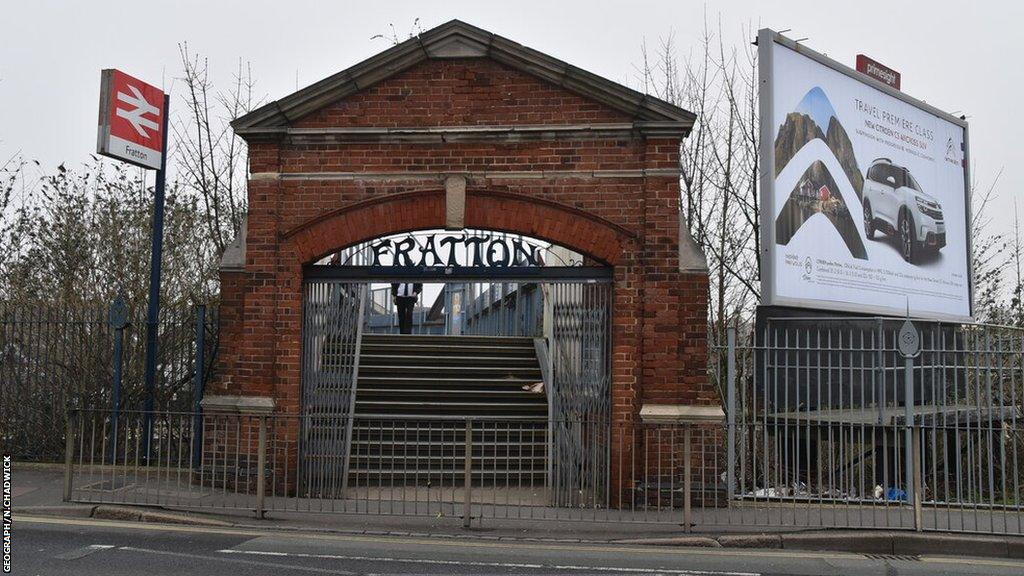Portsmouth: Network Rail 'doesn't have funding' for a Fratton Park walkway study
- Published

Fratton train station is less than a mile away from Portsmouth's Fratton Park stadium
Network Rail says it "supports" Pompey owner Michael Eisner's hopes of a walkway from Fratton station to Fratton Park, but cannot fund a study for it.
Eisner wants the company to help fund work to assess the feasibility of a footbridge between the locations, which are separated by less than a mile.
But he says he is "annoyed" that Network Rail will not pay to help fund the exploratory study.
"I can't understand what is wrong with them [Network Rail]," Eisner said.
He told BBC Radio Solent: "I am frustrated with a company that won't spend £15,000 to do something that is so obvious."
Eisner says a footbridge will make it safer and easier for fans to get to Fratton Park from Fratton station, the nearest railway stop.
He also says the stadium cannot be expanded without it and that other parties, including the local authority, have agreed to contribute.
"We have asked Network Rail to join us and the council," he added.
"It's £15,000 for each of us to do a study and they [Network Rail] won't even do that.
"I don't think they realise how much better it will be for them when they open up the development behind the North Stand."
'Cost shouldn't fall on railway'
In a statement to BBC Sport, Network Rail said it was "disappointed" in Eisner's comments and that it is "very supportive" of ambitions to build a walkway.
"Network Rail have already invested some money into early investigations that would feed into this feasibility study and unlock the redevelopment of the stadium," it said.
"But the cost of redeveloping Portsmouth FC's North Stand shouldn't fall on the railway."
The company added that it was continuing to work with Eisner and related parties.
"This new walkway, while a nice upgrade to have, wouldn't directly improve the reliability [of train journeys] for our passengers and we simply don't have the funding right now.
"For projects like this one, we often work with third-party organisations to secure investment and would encourage Mr Eisner to work with us."
Asked whether he would fund the extra £15,000 for the study himself, Eisner said: "No."

